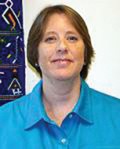A UA associate professor will testify at a landmark Guatemalan trial this month that could cause a ripple effect across the world.
Elizabeth Oglesby, an associate professor of geography and Latin American studies, will testify as an expert witness in the trial of Efrain Rios Montt, who took office in Guatemala through a coup d’etat and reigned from March 1982 to August 1983. He is now being tried for genocide and human rights violations.
Oglesby, who was contacted in 2011 by the Guatemalan Ministry of Justice, wrote a nearly 50-page testimony for the trial detailing what she saw during and learned from her research and time in the country. Oglesby will testify sometime this month to ratify and answer questions on her written testimony from both defense and prosecuting lawyers.
Oglesby, who conducted the research in her 20s, said the request for her testimony proves that students’ age doesn’t mean they “can’t get involved in really engaging, important work.”
“[This is] an incredible story of bringing accountability to the justice system of Guatemala to show nobody is above the law,” Oglesby said.
The 36-year civil war, which ended in 1996, saw 200,000 people killed, more than 80 percent of whom were from Mayan populations, according to the United Nations-backed Guatemalan Commission for Historical Clarification.
“The idea in Guatemala was that if you raised your head, they would just cut it off,” Oglesby said. “Every generation that kept trying to organize for a better life in Guatemala was just being beaten
back and repressed.”
According to the Commission for Historical Clarification, the period of 1981 to 1983, which framed the 17 months in which Rios Montt was in power, accounts for 81 percent of violations during the 36-year conflict.
Oglesby, who researched “internally displaced populations” in Guatemala in the ’80s, including Mayans, focused on the state of people and communities in the aftermath of more than 600 massacres.
“For me, doing research is very much a social process,” Oglesby said. “It’s about forging relationships with people, and those relationships don’t just end the moment you close your notebook … Those relationships go on, and I believe we have an ethical question: What is your role as a researcher?”
Sebastian Quinac, a Maya Kaqchikel from Guatemala and adjunct lecturer in the Latin American Area Center, was displaced 30 years ago by the war, but said part of his heart remains in his native country.
“Hundreds of Mayan people who are in exile, I would say are still in exile. I am now a U.S. citizen, but I still feel exiled because I left my sons forcefully,” Quinac said at the “Impunity on Trial: Historical Memory, Human Rights and the Genocide Trial of Efrain Rios Montt” roundtable discussion Monday. “I had to change my way to think, to see, to act.”
An estimated 1.5 million Guatemalans were displaced by the civil war, and Oglesby agreed that the effects of the war have yet to fade.
“These issues of the humans rights abuses … are not just issues that are part of Latin America’s past,” Oglesby said. “They’re very much issues of Latin America’s present, because the societies are still trying to grapple with the aftermath of these experiences.”
In addition to Rios Montt, the trial is also prosecuting his then-chief of military intelligence, Jose Mauricio Rodriguez Sanchez. While the criminal proceedings are a groundbreaking step, they leave something to be desired, considering all those who have not been held accountable for their crimes, said Linda Green, director of Latin American studies, speaking in the discussion.
“Yes, it’s a crack in the wall and it may lead to something more, but there’s so much more that needs to take place,” Green said. “I do think it gives a measure of hope to people on the ground in and even to those who are not testifying … It really then becomes a testimony for all people.”









